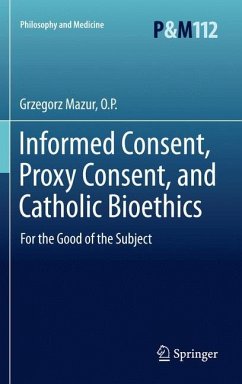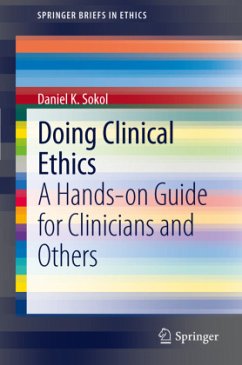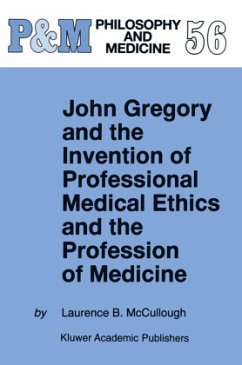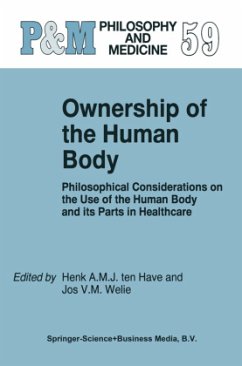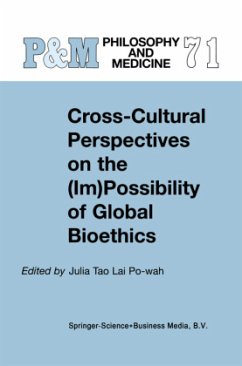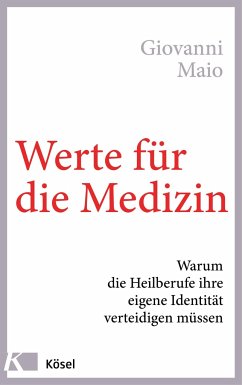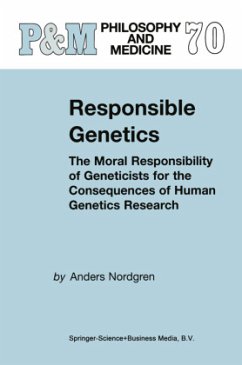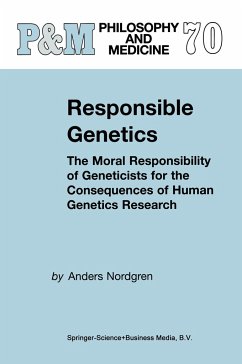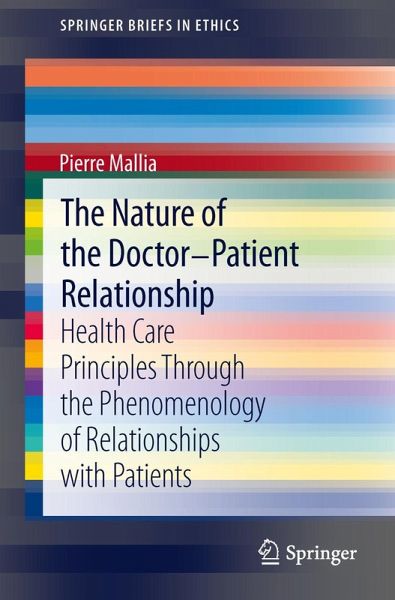
The Nature of the Doctor-Patient Relationship
Health Care Principles through the phenomenology of relationships with patients

PAYBACK Punkte
19 °P sammeln!
This book serves to unite biomedical principles, which have been criticized as a model for solving moral dilemmas by inserting them and understanding them through the perspective of the phenomenon of health care relationship. Consequently, it attributes a possible unification of virtue-based and principle-based approaches.





